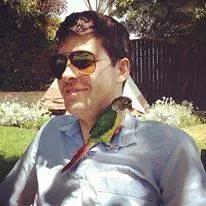We've already learned that the word から means from. It can also mean because or since when placed at the end of a sentence that provides a reason for something. You use the pattern reason sentence + から, + result sentence. See the table below for example sentences using から.
| English | Japanese |
|---|---|
| (I) am going to Japan, because (I) want to learn Japanese. | 日本語 が 習いたい です から、 日本 へ 行きます。nihongo ga naraitai desu kara, nihon e ikimasu. |
| Mr. Yamada does karaoke every day, because he loves music. | 山田 さん は 音楽 が 大好き です から、 毎日 カラオケ を します。yamada san wa ongaku ga daisuki desu kara, mainichi karaoke o shimasu. |
| It doesn't eat, because it's a robot. | ロボット です から、 食べません。robotto desu kara, tabemasen. |
| John didn't come to the party, because he had plans. | ジョン さん は 予定 が ありました から、 パーティー に 来ません でした。jon san wa yotei ga arimashita kara, paatii ni kimasen deshita. |
| I want to eat this food, because it's delicious. | この 食べ物 は おいしい です から、 食べたい です。kono tabemono wa oishii desu kara, tabetai desu. Using です before から is very formal. We'll learn in a later lesson how to make less formal sentences with から. |
Your questions are stored by us to improve Elon.io

